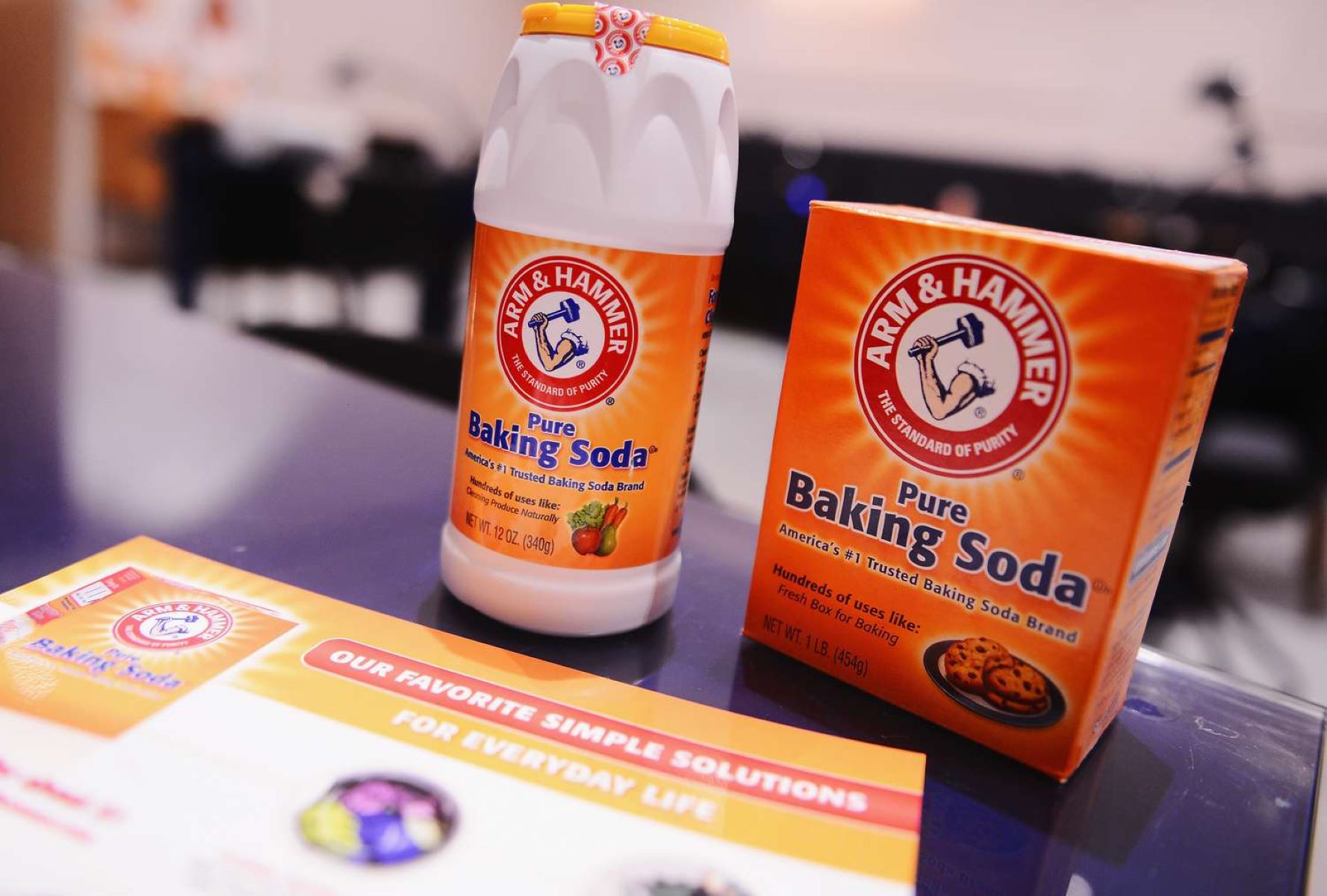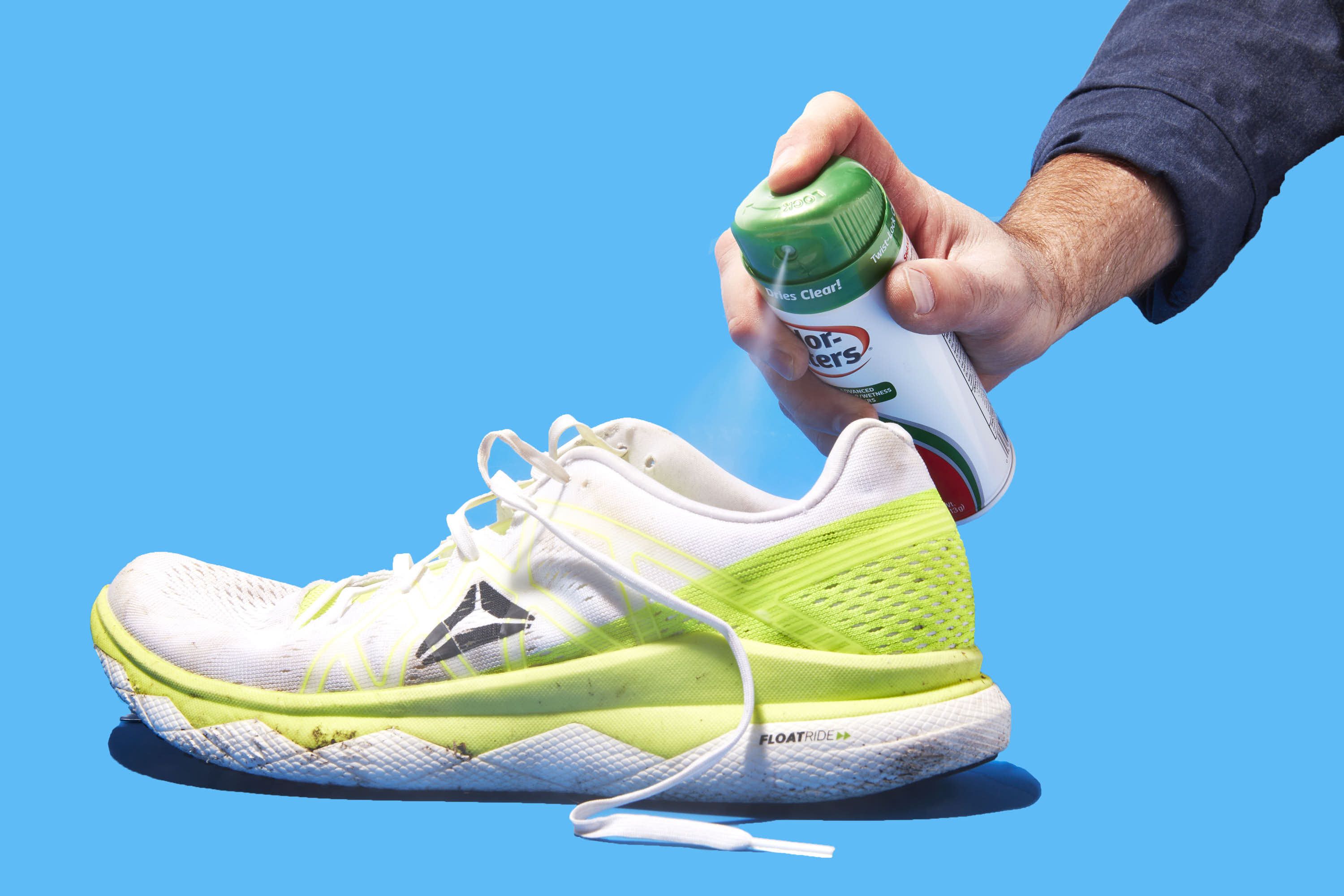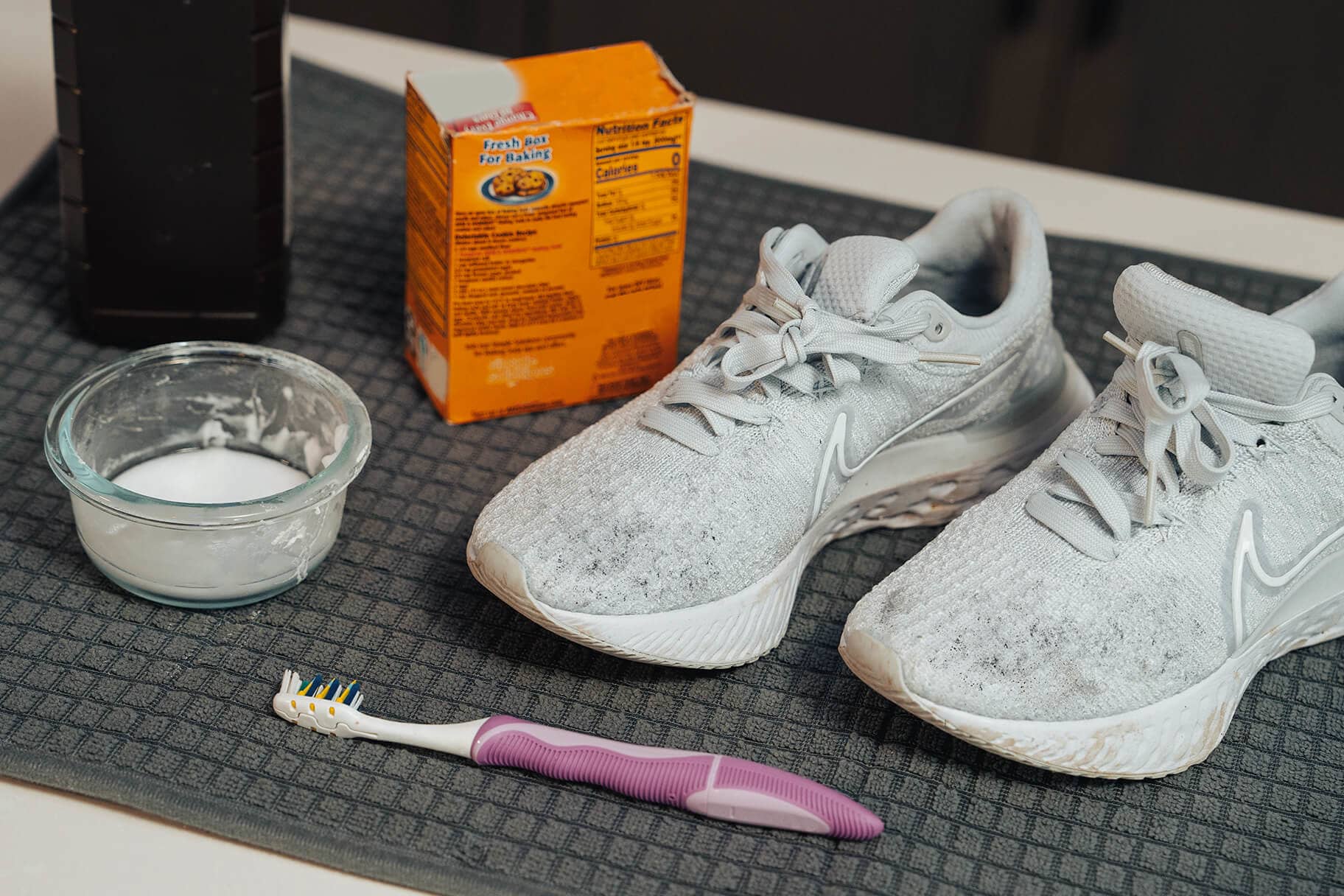Home>Misc>Featured>How To Use Baking Soda For Athletic Performance


Featured
How To Use Baking Soda For Athletic Performance
Modified: August 19, 2023
Improve your athletic performance with this featured guide on how to use baking soda, a natural and effective supplement for boosting endurance and reducing muscle fatigue.
Introduction
When it comes to athletic performance, athletes are constantly on the lookout for ways to enhance their endurance, strength, and agility. While training, nutrition, and proper rest are key components, there are also natural remedies that can give athletes an extra boost. One such remedy that has gained attention in the sports world is baking soda.
Baking soda, also known as sodium bicarbonate, is a versatile household ingredient that has long been used for baking and cleaning. However, it has also been found to have properties that can benefit athletes and improve their performance. In this article, we will explore the benefits of using baking soda for athletic performance, how it works, precautions to take, and how to incorporate it into your training routine.
Baking soda has been shown to have several benefits for athletes. One of the key benefits is its ability to act as a buffering agent. This means that it can help regulate the pH levels in the body, particularly in the muscles and blood. During intense exercise, the muscles produce lactic acid, which can lead to the onset of fatigue and muscle soreness. Baking soda helps to neutralize the acidity caused by lactic acid accumulation, allowing athletes to perform at a higher intensity for longer periods.
In addition to its buffering properties, baking soda has also been found to have ergogenic effects. This means that it can enhance physical performance by improving muscle contractility and reducing the perception of effort. Studies have shown that athletes who supplemented with baking soda experienced increased power output, improved sprint performance, and delayed fatigue compared to those who did not.
Furthermore, baking soda has the potential to improve recovery post-exercise. It can help restore the body’s acid-base balance, reduce muscle soreness, and enhance the body’s ability to remove waste products accumulated during exercise. These factors can contribute to faster recovery times and improved overall performance.
With these notable benefits in mind, it is important to understand how baking soda works. Baking soda is an alkaline substance, meaning it has a high pH value. When ingested, it reacts with the stomach acid to form carbon dioxide gas, water, and salt. This reaction produces a temporary increase in blood pH, which helps to counteract the acid build-up in the muscles.
It is worth noting that while baking soda can be a valuable aid in athletic performance, it is important to use it with caution and be aware of potential side effects. In the following sections, we will delve deeper into the precautions and side effects associated with baking soda supplementation, as well as provide guidelines on how to incorporate it into your training routine.
Benefits of Baking Soda for Athletic Performance
Baking soda has gained recognition for its potential to enhance athletic performance in various ways. Let’s take a closer look at some of the key benefits it offers:
- Improved Endurance: One of the primary advantages of baking soda for athletes is its ability to improve endurance. By neutralizing the acidity in the muscles and blood, baking soda helps delay the onset of fatigue. This means athletes can sustain higher intensity workouts for longer durations.
- Enhanced Power Output: Baking soda supplementation has been found to increase power output in exercises that require short, intense bursts of energy, such as sprinting or weightlifting. By buffering the lactic acid that accumulates during intense exercises, baking soda helps athletes produce more force and maintain performance levels.
- Reduced Perception of Effort: Another benefit of baking soda is its ability to reduce the perception of effort during intense workouts. This means athletes may feel less fatigue and exertion, allowing them to push their limits and achieve better results.
- Quicker Recovery: Baking soda has shown potential in speeding up the recovery process after intense exercise. By restoring the body’s acid-base balance and facilitating the removal of waste products, baking soda can help reduce muscle soreness and expedite the healing process.
- Potential Mental Benefits: In addition to the physical benefits, some studies suggest that baking soda supplementation may also have positive effects on cognitive function. It is thought to enhance focus and mental clarity, giving athletes an edge when it comes to decision-making and performance under pressure.
These benefits make baking soda an attractive option for athletes looking to optimize their training and performance. Incorporating baking soda into their routine can help them push through physical barriers, recover faster, and potentially achieve better results.
How Baking Soda Works
To understand how baking soda works to enhance athletic performance, it is essential to grasp its mechanism of action in the body. Baking soda, or sodium bicarbonate, is an alkaline substance that acts as a buffering agent. It helps regulate the pH levels in the body, especially in the muscles and blood.
During intense exercise, the body produces lactic acid as a byproduct of anaerobic metabolism. This lactic acid can quickly build up in the muscles, leading to a decrease in pH levels and resulting in fatigue and muscle soreness. Baking soda helps counteract this acidity by neutralizing the lactic acid, minimizing pH fluctuations, and maintaining a more optimal environment for muscle function.
Upon ingestion, baking soda reacts with the stomach acid, converting it into carbon dioxide gas, water, and salt. This reaction causes a temporary increase in blood pH, making it more alkaline. This alkalinity acts as a buffer, preventing excessive acidity in the muscles during physical exertion.
By buffering the lactic acid, baking soda allows athletes to sustain higher-intensity workouts for longer periods. This means they can push themselves harder, delay the onset of fatigue, and potentially improve their overall performance.
In addition to buffering properties, baking soda also has ergogenic effects. It has been found to improve muscle contractility, which is the ability of muscles to generate force during exercise. This leads to enhanced power output and greater muscular strength and endurance.
Another way baking soda works is by reducing the perceived effort during exercise. While it may not directly impact physical performance, it can influence an athlete’s mindset. By reducing the perception of effort, athletes may feel less fatigue, allowing them to push beyond their perceived limitations and achieve better results.
It is important to note that while baking soda can be beneficial for athletic performance, individual responses may vary. Factors such as an athlete’s physiology, training regimen, and tolerance to baking soda can influence the extent of its effectiveness.
Now that we have explored how baking soda works to improve athletic performance, let’s delve into the precautions and potential side effects associated with its use.
Precautions and Side Effects
While baking soda can offer numerous benefits for athletic performance, it is important to exercise caution and be aware of potential precautions and side effects.
Firstly, individuals with underlying medical conditions, such as kidney disease, liver disease, high blood pressure, or heart problems, should consult with a healthcare professional before using baking soda as a performance enhancer. Baking soda can affect electrolyte balance and fluid levels in the body, which may have adverse effects on individuals with certain health conditions.
It is also crucial to consider the dosage when using baking soda. Taking too much can lead to gastrointestinal issues, including bloating, gas, nausea, and abdominal discomfort. It is recommended to start with a lower dose and gradually increase it, allowing the body to adapt and minimize potential side effects.
Furthermore, it is important to be mindful of the timing of baking soda ingestion. Consuming it too close to training or competition may lead to discomfort or gastrointestinal distress. Experts suggest taking baking soda at least 60-90 minutes before exercise to allow for proper absorption and avoid any unwanted effects during performance.
Individual tolerance to baking soda can also vary. Some individuals may respond well, experiencing the desired benefits, while others may not see significant improvements or may even experience negative side effects. It is recommended to experiment with baking soda during training sessions rather than during important competitions to assess individual responsiveness.
Lastly, it is crucial to note that baking soda should not be relied upon as a standalone solution for athletic performance. It should be considered as a supplementary aid alongside a comprehensive training program, proper nutrition, adequate hydration, and sufficient rest.
If you experience any severe adverse effects or have concerns about using baking soda, it is advisable to consult with a healthcare professional for personalized guidance and advice.
Now that we have covered the precautions and potential side effects, let’s move on to how you can incorporate baking soda into your training routine for optimal results.
How to Use Baking Soda for Athletic Performance
If you’re considering incorporating baking soda into your training routine to enhance your athletic performance, here are some guidelines to follow:
- Consult with a healthcare professional: Before starting any new supplementation regimen, it is important to consult with a healthcare professional, especially if you have any underlying medical conditions.
- Determine the appropriate dosage: The optimal dosage of baking soda can vary depending on the individual. It is recommended to start with a lower dose and gradually increase it, monitoring your body’s response and adjusting accordingly.
- Timing is key: It is crucial to time your baking soda ingestion properly. Take it at least 60-90 minutes before exercise to allow for proper absorption. Consuming it too close to training or competition may result in discomfort or gastrointestinal distress.
- Mixing and administration: Baking soda can be consumed by mixing it with water. Typically, 0.3 grams of baking soda per kilogram of body weight is recommended. For example, a 68 kg (150 lb) individual would take approximately 20 grams of baking soda mixed in water. However, it is important to consult with a healthcare professional for personalized dosage recommendations.
- Monitor your tolerance: Each individual may respond differently to baking soda supplementation. Monitor your body’s response and assess your tolerance. This will help you determine the ideal dosage and minimize potential gastrointestinal side effects.
- Incorporate it into your training routine: Baking soda supplementation is most effective for high-intensity, short-duration exercises. Consider using it for activities such as sprints, interval training, weightlifting, or high-intensity interval training (HIIT).
- Combine it with a comprehensive approach: Remember that baking soda is not a standalone solution for athletic performance. It should be combined with a well-rounded approach to training, including proper nutrition, hydration, rest, and a structured workout program.
By following these guidelines, you can effectively incorporate baking soda into your training routine and potentially experience the benefits it offers for athletic performance.
Now that you have a better understanding of how to use baking soda, let’s conclude with a recap of the key points discussed in this article.
Conclusion
Baking soda can be a valuable tool for enhancing athletic performance. Its ability to act as a buffering agent, neutralize acidity, and improve muscle contractility can contribute to improved endurance, power output, and overall performance. Additionally, baking soda has the potential to aid in post-workout recovery and provide mental benefits such as increased focus and clarity.
However, it is important to approach baking soda supplementation with caution. Consulting with a healthcare professional, determining the appropriate dosage, and being mindful of potential side effects are essential steps to take. Timing your ingestion, monitoring your tolerance, and incorporating baking soda into a comprehensive training program are also key considerations.
Remember that baking soda should not be relied upon as a standalone solution for athletic performance. It is a supplement that works best when combined with proper nutrition, hydration, rest, and a well-structured training routine.
If you are considering using baking soda for athletic performance, it is important to assess your individual needs and goals. Experimenting with baking soda during training sessions and monitoring your body’s response can help you determine its effectiveness for you personally.
Incorporating baking soda into your athletic training can potentially give you the edge you need to push beyond your limits, improve your performance, and reach your goals. However, it is always recommended to consult with a healthcare professional before starting any new supplementation regimen.
With the knowledge and understanding provided in this article, you can make an informed decision about whether or not to incorporate baking soda into your athletic performance routine. So why not give it a try and see the potential benefits it can offer to enhance your performance on the field, track, or court?









